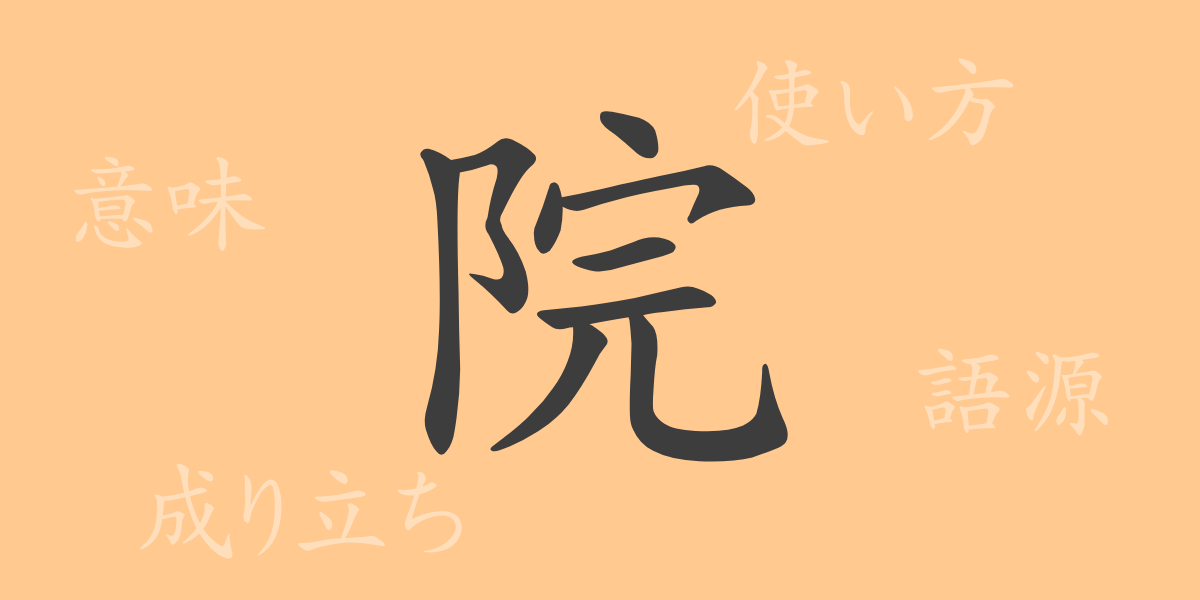“
In Japanese culture, kanji are more than just characters. Each one possesses its own unique history, meaning, and beauty. “”院”” ( in) is one of the common kanji in Japan, and its usage can be seen in a wide range of fields from ancient times to the present day. In this article, we will delve deep into the world of this kanji, starting from the origin of “”院,”” its meaning, usage, reading, and related compound words and idioms, guiding you through the rich world of this character.
The Origin of 院 ( in)
The kanji “”院”” can be traced back to ancient Chinese characters. Originally derived from a pictograph meaning “”building,”” it became a word used to refer to particularly important buildings or facilities. In Japan, it was introduced from China during the Nara period (710-784) and began to be used to indicate political facilities and religious architecture.
The Meaning and Usage of 院 ( in)
“”院”” is used as a kanji referring to buildings or facilities in a wide range of meanings. For example, it can be seen in various contexts in society, such as “”病院”” ( byouin) meaning a medical institution, “”美術館”” ( bijutsukan) meaning an art museum, and “”法院”” ( houin) meaning a court of law. Additionally, “”院”” is used to indicate specific institutions, organizations, or places, and it includes a nuance of respect and formality.
Reading, Stroke Count, and Radical of 院 ( in)
Although “”院”” has a relatively simple structure among Japanese kanji, its reading, stroke count, and radical have distinctive characteristics.
- Reading: The on’yomi (Chinese reading) is “”In”” , and there is no kun’yomi (Japanese reading).
- Stroke Count: The kanji “”院”” consists of a total of 10 strokes.
- Radical: The radical of “”院”” is “”阝”” ( kozatohen), a radical commonly seen in kanji related to buildings or land.
Compound Words, Idioms, and Proverbs Using 院 ( in) and Their Meanings
There are numerous compound words and idioms in Japanese that include “”院,”” each with its own unique meaning. For example, “”寄宿院”” ( kishukuin) means “”dormitory,”” referring to a facility where students live. “”閉院”” ( heiin) means a hospital or facility closing for the day, and “”院内感染”” ( innaikansen) refers to a nosocomial infection occurring within a hospital. These compound words and idioms are frequently used in both daily life and business situations.
Conclusion on 院 ( in)
As its shape suggests, the kanji “”院”” is used in many words related to buildings and facilities. Introduced from ancient China and established as a Japanese word to this day, “”院”” is deeply rooted in our lives. Used in various fields such as medicine, education, law, and art, “”院”” symbolizes the richness of the Japanese language and the diversity of its culture.
“

























